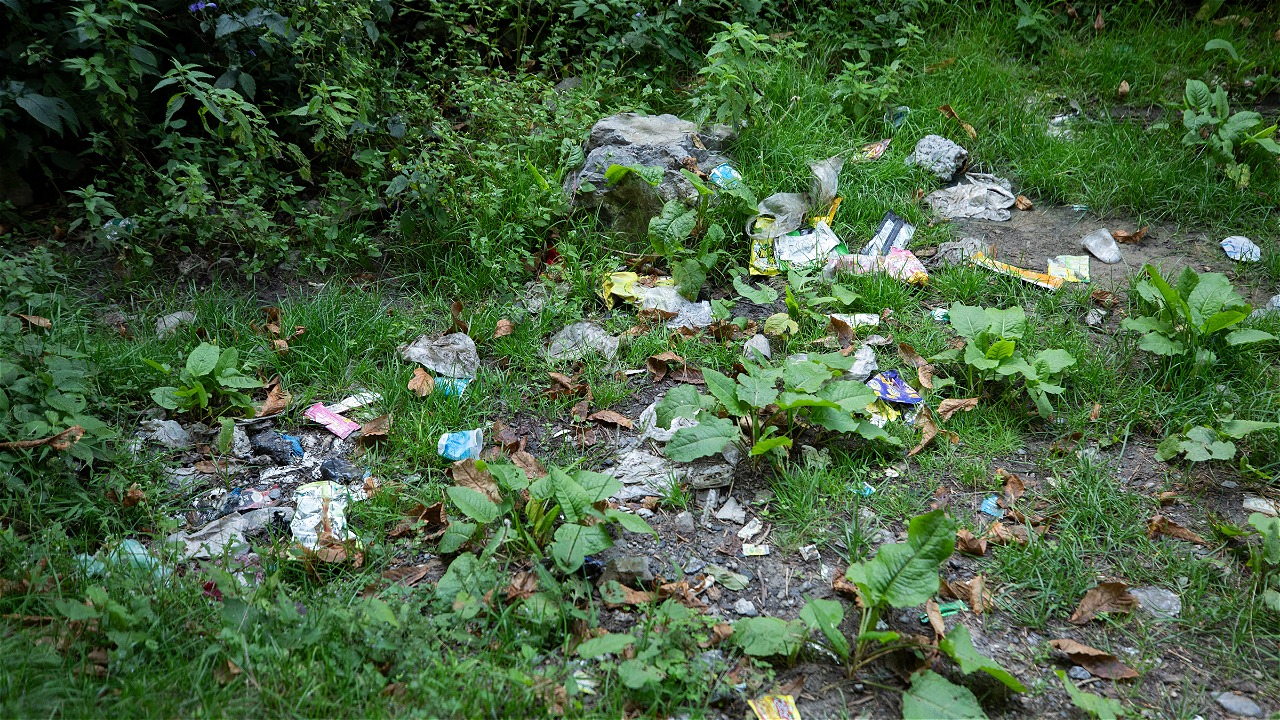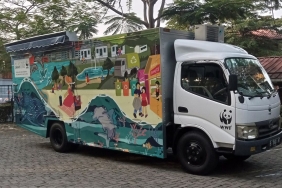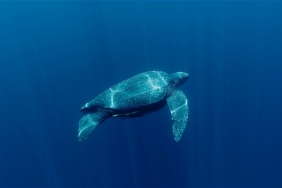WWF OPENS THE ENVIRONMENTAL INSIGHT OF UPN VETERAN SURABAYA ACADEMIC COMMUNITY
By: Ciptanti Putri
In a series of "Save Earth Festival Surabaya 2014" activities, the academic community of Universitas Pembangunan Nasional (UPN) Veteran Surabaya held a seminar entitled "Green Building, Green Faculty" in the auditorium of the Faculty of Social and Political Sciences (FISIP) at the end of November. The event, which was opened by the Dean of FISIP UPN Veteran Surabaya, Dra. Hj. Suparwati, MSi., featured two speakers, Adji Santoso, Brand and Production Manager WWF-Indonesia, and Hermawan Some from Komunitas Nol Sampah Surabaya.
In his presentation, Adji explained a concept entitled "One Planet Perspective" based on WWF's latest report on the condition of the earth and its carrying capacity for humans. "Water, food and energy security are highly dependent on the condition of biodiversity and ecosystem integrity. In simple language, humans must start preserving nature and ecosystems if they don't want to become extinct," Adji explained.
The WWF report "Living Planet Report 2014" states that currently it takes 1.5 earths to be able to support human consumption patterns. The imbalance of nature due to excessive exploitation is indicated to cause the extinction of a number of wildlife to weather anomalies. "If it is allowed to drag on, it is not impossible that we will soon face a food crisis and the threat of extraordinary natural disasters," said Adji.
In accordance with the theme of the seminar that day, Adji advised all participants to start a green lifestyle as a form of contribution to nature conservation. "We don't need to go directly to conservation areas to show our contribution. Simply by wisely choosing the products we use daily, saving electricity and non-renewable energy, and trying to recycle plastic waste, we have helped extend the 'lifespan' of nature so that it can also be enjoyed by future generations."
On the second occasion, Hermawan Some revealed a number of data and facts about the environmental conditions in Surabaya and the various problems that exist. In his presentation, Hermawan gave a number of simple and applicable solutions that can be applied in everyday life, such as the activity of sorting and recycling non-organic waste, techniques for choosing the right plants for home environment needs and various ways of farming, and others.
The seminar was enlivened by a question-and-answer interaction guided by the event moderator. At the end of the activity, the two speakers invited all seminar participants to start living a green lifestyle by using plastic wisely and saving paper.





